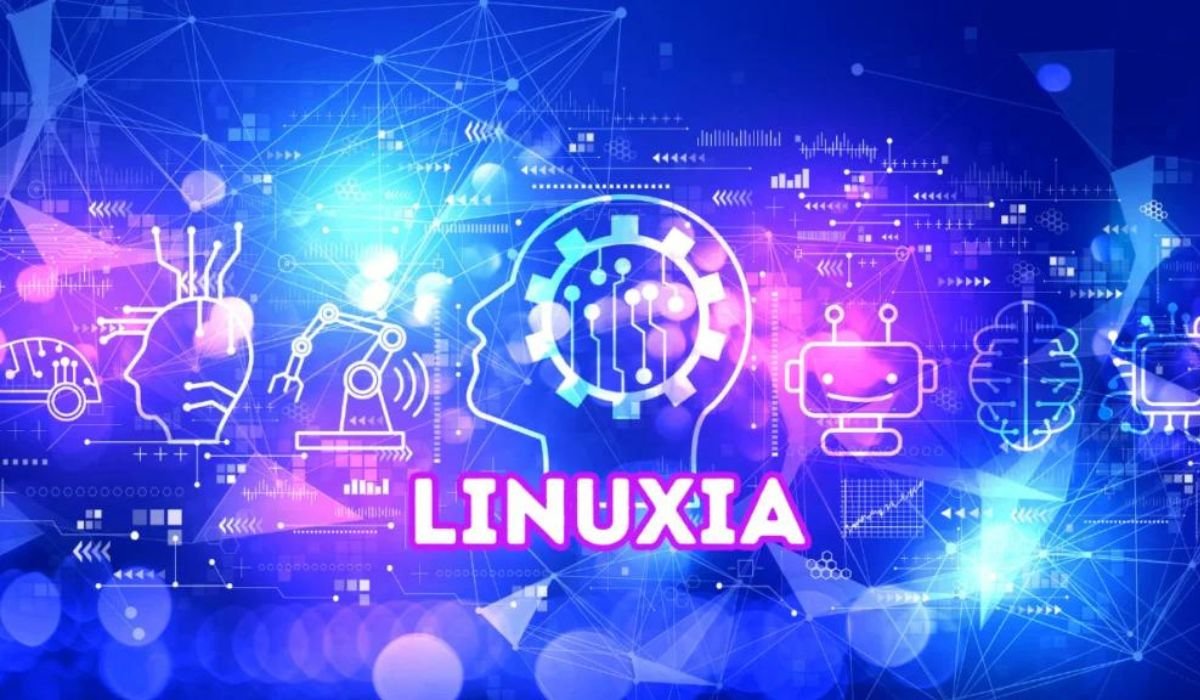Introduction
“Linuxia” represents the world of Linux, an open-source operating system that has transformed the computing landscape. From its humble beginnings to its current role as a major player in technology, Linuxia embodies the power and versatility of Linux. This article provides an in-depth look into what Linux is, its evolution, its vibrant community, various distributions, applications, and its impact on different sectors.
What is Linux?
Linux is an open-source operating system kernel that serves as the foundation for various operating systems, known as distributions or distros. Developed by Linus Torvalds in 1991, Linux has grown into a robust and flexible system used worldwide. Unlike proprietary operating systems, Linux is freely available for modification and redistribution, making it a popular choice for both personal and professional use.
The History and Evolution of Linux
Linux began as a personal project by Linus Torvalds, who aimed to create a free, Unix-like operating system. Over the years, it has evolved significantly, with contributions from a global community of developers. Key milestones in its development include:
- Early Releases (1991-1994): Initial versions of Linux were focused on basic functionality and compatibility with Unix.
- Growth and Expansion (1995-2000): Linux gained traction as various distributions emerged, including Red Hat and Debian.
- Mainstream Adoption (2001-Present): Linux has become integral to various technologies, from servers to mobile devices, and continues to thrive with innovations and widespread adoption.
The Significance of Linux in the Computing World
Linux has made a significant impact on the computing world due to its flexibility, stability, and security. It powers a vast array of devices, including:
- Servers: Many web servers and cloud services run on Linux.
- Embedded Systems: Linux is used in devices like routers, smart TVs, and IoT devices.
- Desktops: While less common than Windows or macOS, Linux desktop environments are growing in popularity.
- Supercomputers: A majority of the world’s fastest supercomputers run on Linux.
The Linux Community
The Global Nature of the Linux Community
The Linux community is diverse and global, encompassing developers, users, and enthusiasts from all over the world. This community collaborates to improve Linux, share knowledge, and support one another. It operates through various channels, including:
- Online Forums: Platforms like Reddit and LinuxQuestions.org offer spaces for users to discuss issues and share solutions.
- Mailing Lists: Many Linux projects use mailing lists for development discussions and announcements.
- Social Media: Communities on Twitter, Facebook, and other social networks provide updates and foster connections.
Linux User Groups and Meetups
Local Linux User Groups (LUGs) and meetups offer opportunities for face-to-face interactions among Linux enthusiasts. These gatherings often include workshops, presentations, and discussions about Linux-related topics.
Linux Distributions
Popular Linux Distributions
Several Linux distributions cater to different needs and preferences:
- Ubuntu: Known for its user-friendliness and robust community support, Ubuntu is a popular choice for newcomers.
- Debian: Renowned for its stability and reliability, Debian serves as the foundation for many other distributions, including Ubuntu.
- Fedora: Focused on innovation, Fedora includes cutting-edge features and technologies.
Distro Hopping and Finding the Right Fit
“Distro hopping” refers to the practice of trying out various Linux distributions to find the one that best suits your needs. Each distribution offers unique features, so exploring different options can help you find the perfect fit.
The Benefits of Using a Linux Distribution
Using a Linux distribution comes with several advantages:
- Customization: Linux distributions offer a high degree of customization, allowing users to tailor their systems to their needs.
- Security: Linux is known for its strong security features, including regular updates and a robust permission system.
- Community Support: The Linux community provides extensive support through forums, documentation, and user groups.
Linux Applications
Essential Linux Applications
Linux offers a wide range of applications for various needs:
- Office Suites: LibreOffice and OpenOffice provide comprehensive office tools for productivity.
- Web Browsers: Browsers like Firefox and Chromium offer robust browsing experiences.
Specialized Linux Applications
Linux also supports specialized applications:
- Servers: Apache, Nginx, and MySQL are commonly used for web and database server management.
- Development Tools: Tools like Git, Docker, and Visual Studio Code support software development.
Discovering New Linux Software
The Linux ecosystem is rich with software, often available through repositories or package managers. Tools like Synaptic and GNOME Software make it easy to discover and install new applications.
The Power of Open Source
The Philosophy of Open-Source Software
Open-source software is built on principles of transparency, collaboration, and freedom. The source code is available for anyone to view, modify, and distribute, promoting innovation and community-driven development.
The Advantages of Open-Source Over Proprietary Software
Open-source software offers several benefits compared to proprietary alternatives:
- Cost: Open-source software is typically free to use, reducing software costs.
- Flexibility: Users can modify open-source software to meet specific needs.
- Security: Open-source projects benefit from community scrutiny, leading to rapid identification and resolution of security issues.
Contributing to Open-Source Projects
Contributing to open-source projects can involve various activities, including coding, documentation, and testing. Engaging with projects provides opportunities to learn, collaborate, and make a positive impact on the software community.
Linux on the Desktop
Using Linux as a Daily Driver
Linux can serve as a daily operating system, offering a stable and customizable environment for everyday tasks. Many users appreciate the control and flexibility it provides.
Customizing Your Linux Desktop
Linux desktop environments are highly customizable. Users can change themes, icons, and layouts to create a personalized computing experience.
Transitioning from Windows or macOS to Linux
Switching to Linux from other operating systems involves some adjustment. Familiarizing yourself with Linux commands and applications can ease the transition and help you get the most out of your new system.
Linux for Servers and Networking
The Role of Linux in Web Hosting and Cloud Computing
Linux is a dominant force in web hosting and cloud computing due to its reliability, scalability, and cost-effectiveness. Many web servers and cloud platforms run on Linux-based systems.
Linux Server Administration and Management
Managing Linux servers involves tasks such as configuring services, monitoring performance, and ensuring security. Tools like SSH, systemd, and various monitoring utilities facilitate effective server administration.
Network Security and Virtualization with Linux
Linux provides robust network security features and supports virtualization technologies like KVM and Docker. These capabilities enable efficient management of virtual environments and secure network configurations.
Linux in Education and Research
Linux is increasingly used in educational settings due to its low cost and flexibility. Many schools and universities deploy Linux-based systems for computer labs and research projects.
Linux for Scientific Computing and Research
Linux is a preferred choice for scientific computing and research due to its stability and support for high-performance computing (HPC) environments. It facilitates complex simulations, data analysis, and research applications.
Educational Resources for Learning Linux
Numerous resources are available for learning Linux, including online courses, tutorials, and books. Websites like Linux Academy and Udemy offer structured learning paths for users at all skill levels.
Linux and Gaming
Gaming on Linux
Gaming on Linux has improved significantly with the advent of platforms like Steam and tools such as Proton, which allows many Windows games to run on Linux.
Popular Linux Games and Emulators
Linux supports a variety of games and emulators, ranging from indie titles to classic arcade games. Emulators like RetroArch enable users to enjoy games from different consoles.
The Future of Gaming on Linux
The future of gaming on Linux looks promising, with ongoing developments to improve compatibility and performance. Continued support from major gaming platforms and developers will likely enhance the gaming experience on Linux.
The Future of Linux
Emerging Trends and Innovations in Linux
The Linux ecosystem is constantly evolving, with trends such as containerization, edge computing, and AI integration shaping its future. Innovations in these areas will drive Linux’s growth and adaptation.
The Impact of Linux on Technology
Linux has profoundly influenced technology by driving advancements in server management, cloud computing, and embedded systems. Its open-source nature encourages continuous innovation and collaboration.
The Continued Growth and Success of the Linux Ecosystem
Linux continues to thrive due to its adaptability, strong community support, and role in critical technology sectors. The ecosystem’s growth reflects its significance and enduring appeal.
Conclusion
Linuxia represents a vibrant and dynamic world of Linux, encompassing its history, community, and impact on technology. From its open-source philosophy to its diverse applications and future potential, Linux offers a powerful and flexible platform for users across various domains. Embracing Linux means joining a global community dedicated to innovation and collaboration.
You May Also Like: The Importance of an Oprekladač in Modern Society
FAQs
What is Linux and why is it important?
Linux is an open-source operating system kernel known for its flexibility, stability, and security. It powers various devices, from servers to desktops.
What are some popular Linux distributions?
Popular distributions include Ubuntu, Debian, and Fedora, each offering unique features and catering to different user needs.
How can I contribute to open-source Linux projects?
Contributing involves activities like coding, testing, and documentation. Engaging with project communities and repositories is a good starting point.
Is Linux suitable for everyday use?
Yes, Linux can be used as a daily operating system, offering customization, stability, and a wide range of applications for personal and professional use.
What is the future of Linux in gaming?
The future of Linux in gaming is promising, with advancements in compatibility and performance. Platforms like Steam and tools like Proton enhance the gaming experience on Linux.











